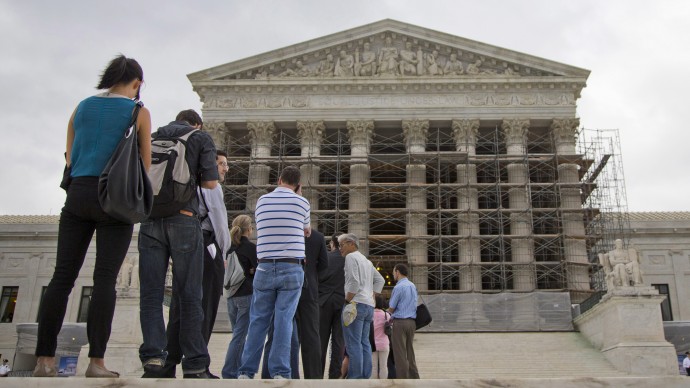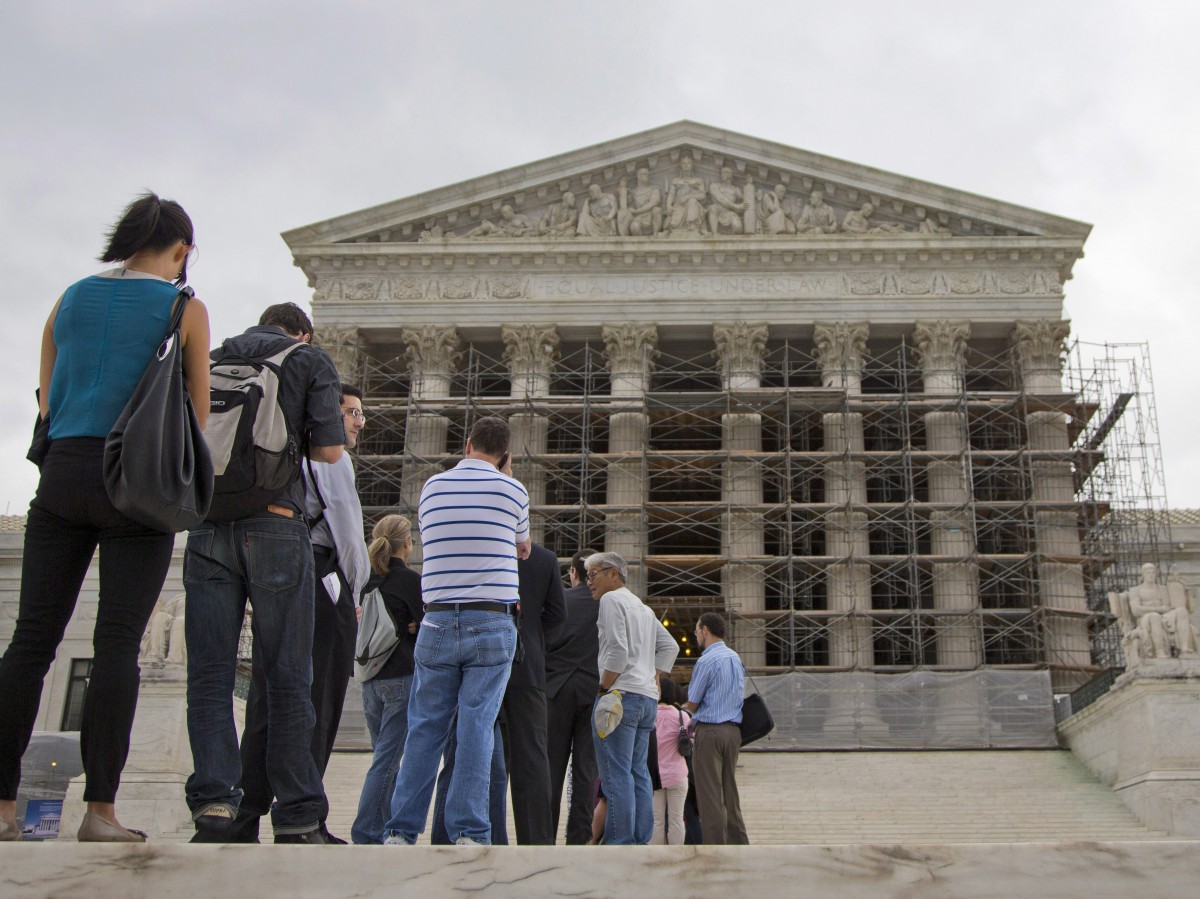
On Wednesday, the U.S. Supreme Court began hearing arguments on whether or not a town in upstate New York crossed a constitutional line when it decided to begin its town board meetings with prayers, typically from the Christian faith.
Now it’s up to the Supreme Court justices to determine if the town’s decision to pray before a legislative meeting violates the portion of the First Amendment that prohibits the U.S. government from establishing a religion.
The case, the Town of Greece v. Galloway, specifically examines legislative prayer practices in the town of Greece, N.Y., a suburb of Rochester that has a population of about 96,000.
According to local news reports, the town has opened its monthly town board meetings with a prayer from a local clergy member or a volunteer since 1999.
For the first nine years, all of the town’s public prayers were led by Christians, prompting two residents — one who identifies with the Jewish faith; the other, an atheist — to sue the town in 2008, because anyone who attends the board meetings is forced to sit through the prayers.
After the two residents, Susan Galloway and Linda Stephens, filed their lawsuit, the town expanded the type of prayers that occurred before the town board meetings and even had a Wiccan priestess lead one session.
However, in 2012 an appellate court ruled that a “reasonable observer” would likely consider the town’s legislative prayer program to be “an endorsement of a particular religious viewpoint.”
“A substantial majority of the prayers in the record contained uniquely Christian language,” Judge Guido Calabresi wrote for a unanimous three-judge panel of the U.S. Court of Appeals for the Second Circuit. “Roughly two-thirds contained references to ‘Jesus Christ,’ ‘Jesus,’ ‘Your Son’ or the ‘Holy Spirit.’”
“The town’s prayer practice must be viewed as an endorsement of a particular religious viewpoint,” Judge Calabresi wrote.
Before either side began presenting their case to the U.S. Supreme Court, the conservative-leaning justices shared their support for public prayer, while the liberal-leaning justices on the court expressed their concerns such as some American citizens may feel forced to pray before public sessions. They also expressed their concern in allowing the courts to determine which prayers were acceptable and which were not.
“I don’t think this is an easy question. I think it’s hard,” Justice Elena Kagan said. “Part of what we are trying to do here is to maintain a multi-religious society in a peaceful and harmonious way. And every time the court gets involved in things like this, it seems to make the problem worse rather than better.”
But Chief Justice John Roberts Jr. and Justice Antonin Scalia, two of the six Catholic justices on the court, disagreed.
“People who have religious beliefs ought to be able to invoke the deity when they are acting as citizens,” Scalia said. “It seems to me that when they do that, so long as all groups are allowed to be in, it seems to me an imposition upon them to stifle the manner in which they invoke their deity.”
The last time the Supreme Court ruled on opening legislative sessions with prayers was in 1983.
In that case, Marsh v. Chambers, the court ruled that the prayers did not violate the First Amendment because the government did not act with “impermissible motive” when determining who would lead the prayer or use the prayer program to promote one religion over another.
For the past 200 years, both the Senate and the House of Representatives have begun their daily sessions with a prayer, and even the Supreme Court itself begins by saying, “God save the United States and this honorable court.”
But as Kagan pointed out, the court does not open its sessions with a sectarian prayer that acknowledges “the saving sacrifice of Jesus Christ on the cross,” like the town board meetings in Greece were doing.
She read one of the prayers that was said before a meeting that read, “We acknowledge the saving sacrifice of Jesus Christ on the cross. We draw strength from His resurrection. Blessed are you who has raised up the Lord Jesus. You will raise us in our turn and put us by His side.”
Kagan hypothetically asked Thomas Hungar, the lawyer representing the town of Greece, if it would be permissible for the chief justice to have everyone rise and deliver an overtly Christian prayer, make the sign of the cross and then call the first case.
Hungar responded by saying, “I don’t think so, Your Honor,” and added that legislative prayer is a tradition as old as the country, which is why the court ruled the way it did in 1983.
In response, Douglas Laycock, the attorney representing the women who challenged the prayers in Greece, said that there is an important difference in this case from the 1983 Marsh ruling — namely that the prayers said in New York were often explicitly sectarian. Laycock added that the town’s residents were forced to listen to them in order to participate in local government.
A decision in the case is expected by the end of June 2014.


